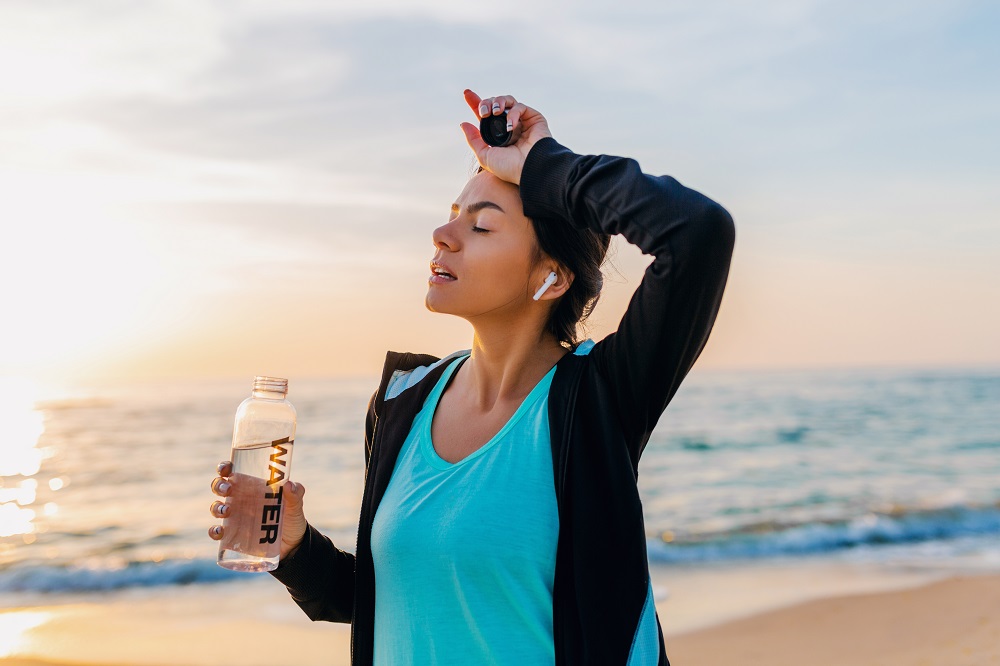The Best Way to Recover from Dehydration: A Comprehensive Guide



The Best Way to Recover from Dehydration: A Comprehensive Guide
Dehydration can sneak up on you, leaving you feeling drained and weak. Whether it’s due to intense exercise, illness, or simply not drinking enough water, the effects of dehydration can be debilitating. But fear not, because, in this guide, we’ll explore the best way to recover from dehydration and get you back on your feet in no time. From hydrating effectively to considering IV Hydration Therapy, we’ll cover it all. Discover the secrets to recovering from dehydration and learn how long can it take to recover from dehydration to bounce back to your vibrant self.
Understanding Dehydration:
Before delving into the recovery process, it’s essential to grasp what dehydration entails. Simply put, dehydration occurs when your body loses more fluids than it takes in. This imbalance can stem from various factors, including excessive sweating, diarrhea, vomiting, or simply not drinking enough water.
Signs and Symptoms:


It’s essential to identify the signs of dehydration promptly for timely intervention. Common symptoms include:
- Thirst
- Dry mouth and lips
- Dark urine
- Fatigue
- Dizziness
- Headaches
- Reduced urine output
If left unaddressed, dehydration can escalate, leading to more severe complications such as heatstroke or kidney problems.
The Best Way to Recover from Dehydration:
Recovering from dehydration requires a multi-faceted approach that addresses both fluid intake and electrolyte balance. Here are some best practices to facilitate swift recovery:
Hydrate, Hydrate, Hydrate: The cornerstone of dehydration recovery is replenishing lost fluids. Aim to drink water steadily throughout the day, focusing on small sips if you struggle with nausea. Electrolyte-enhanced beverages like sports drinks or oral rehydration solutions can help restore electrolyte balance, making them essential components of the best way to recover from dehydration.
Eat Water-Rich Foods: In addition to fluids, consuming water-rich foods like fruits (watermelon, oranges, and strawberries) and vegetables (cucumbers, tomatoes, and spinach) can aid in hydration and provide essential nutrients.
Gradually Reintroduce Solid Foods: If dehydration is accompanied by gastrointestinal issues like vomiting or diarrhea, the best way to recover from dehydration is to start with bland, easily digestible foods like rice, bananas, and toast. These foods help replenish lost nutrients without overwhelming the digestive system.
Rest and Recharge: Dehydration often leaves you feeling tired and weak. Allow your body ample time to rest and recuperate, avoiding strenuous activities until you feel fully hydrated and energized.
Consider IV Hydration Therapy: In cases of severe dehydration or when oral intake is insufficient, intravenous (IV) hydration therapy can be the best way to recover from dehydration and expedite the recovery process. Administered by healthcare professionals, IV fluids deliver hydration and electrolytes directly into the bloodstream, ensuring rapid absorption and relief from dehydration symptoms.
How Long Can It Take to Recover from Dehydration?
The duration of dehydration recovery varies depending on several factors, including the severity of dehydration, individual health status, and adherence to recovery strategies. Mild dehydration can often be resolved within a few hours to a day with adequate fluid intake and rest. However, severe dehydration may require several days of diligent hydration and, in some cases, medical intervention such as IV hydration therapy.



Tips to Get Rid of Dehydration:
To accelerate the recovery process and prevent future bouts of dehydration, consider the following tips:
Establish a Hydration Routine: Make a conscious effort to drink water regularly throughout the day, even when you’re not thirsty. Set reminders or carry a refillable water bottle to stay hydrated on the go.
Monitor Urine Color: Pay attention to the color of your urine as it can indicate hydration levels. Ideally, urine should be pale yellow; darker shades may signal dehydration and warrant increased fluid intake.
Adjust Fluid Intake Based on Activity: Increase your fluid intake during periods of increased physical activity, hot weather, or illness to offset fluid losses and maintain hydration.
Avoid Dehydrating Substances: Limit consumption of diuretic beverages like alcohol and caffeine, which can increase fluid loss and exacerbate dehydration.
Seek Medical Attention if Necessary: If dehydration symptoms persist or worsen despite self-care efforts, consult a healthcare professional for proper evaluation and treatment recommendations.
Book Now for Optimal Hydration:
Ready to embark on your journey towards optimal hydration and well-being? Book an appointment with Westside Wellness today and let our experienced healthcare professionals guide you through the best way to recover from dehydration. Don’t let dehydration dampen your vitality – take proactive steps towards a healthier, hydrated lifestyle today!
Conclusion:
Dehydration is a common yet preventable condition that can have serious consequences if left untreated. By knowing the best way to recover from dehydration and taking proactive steps to stay hydrated, you can keep your body functioning optimally and avoid the discomfort of dehydration. Remember, hydration is key to health and well-being, so drink up and take care of yourself!
Don’t hesitate to seek personalized hydration solutions and expert care at Westside Wellness to support your journey toward optimal health.






